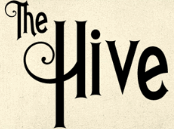As an exploration of our interest in the dialogue literature engages in with non-critics, we’ve asked several Molossus readers to review selected titles. Our first such feature showcases screenwriter Jon Worley and entrepreneur Charles Renn.
DS
Screenwriter Jon Worley, represented by William Morris Endeavor Entertainment, writes for FX. Keen to discover adaptable material, he is a routine reader of graphic novels.
Swallow Me Whole, Nate Powell. (Top Shelf Productions) $19.95
A dark, hallucinogenic exploration of a childhood tainted by madness and melancholy, Nate Powell’s Swallow Me Whole is a story subtly told through lyrical, engrossing illustrations. The surface story is in serious danger of stepping into melodrama: Ruthy, a misunderstood teenager, copes with overwhelming numbness and alienation brought on by her schizophrenia medication. Powell, however, keeps things fresh, visualizing Ruthy’s internal life with a swirl of vivid, disturbingly trippy visuals: insect plagues, living pills, and an extremely menacing frog. The visual style informs the fragmentary emotions, complementing and deepening what we read. This is a surreal, elemental story, and a highly recommended one.
Business owner and Entrepreneur Charles Renn, owner of The Hive Los Angeles and its art gallery The Apiary, enjoys contemporary fiction, especially from Latin America.
Fugue State, Brian Evenson, Art by Zak Kelly. (Coffee House Press) $14.95
Brian Evenson’s collection of stories revolves around his intriguing theme, the fugue state, a mostly short-term amnesiatic disorder of the person. The opposites explored in Fugue State—young and old, strong and weak, fiction and seemingly non-fiction—develop into a well-written commentary on various contemporary American cultural positions. He explores death and immortality, survival and morality in the possible histories or futures he sets in cityscapes, farms, and the suburbs.
Evenson abruptly snatches innocence in “Mudder Tongue”. Its young female protagonist digests her parents’ recent divorce, the inevitable destruction of her father, and the fate of her mother. In the closing story, “The Adjudicator,” set in a post-catastrophic farmland, the story’s namesake’s god-like social control and ninja-esque killing reputation—both results of exposure to catastrophe—invite conflict with peon’s expectations and a self-conscious effort toward compassion.
The scope of Fugue State’s creativity generously invites the reader to create worlds of disease, torture, isolation, and mystery. A morbid aftertaste lingers after each story, a testament to the writer’s skill.
Certainly, Fugue State deserves attention as a clever and timely analysis of America’s self-absorbed culture, obsessed with destruction and annihilation. That said, the title story—and one supposes the collection’s climax—is a disappointment. In direct acknowledgment of the disorder, Evenson’s usual spirit for death and surprise are overshadowed by the story’s evident direction, amnesia.
Overall, though, the collection is an excellent exploration of the fugue state, with Evenson serving as competent guide.





Leave a comment